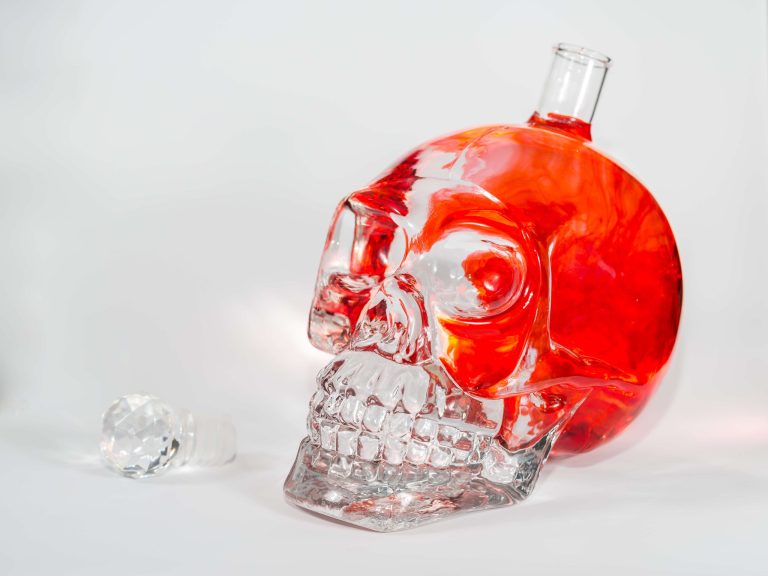These environmental factors may be likened to physical exercise, but in this case, the “exercise” involves cognitive stimulation. Recovery seems to be accelerated if newly abstinent subjects are asked to “use their heads” at a level that is equal to, or slightly beyond, their current level of functioning. This experience-dependent recovery may happen spontaneously because of naturally occurring events, as when a job requires that a task be performed repeatedly. Alternatively, recovery http://chudinov.ru/etruskologiya/ can be facilitated by planned cognitive activities, such as repeating mental exercises, similar to the use of physical therapy to recover after a sports injury. In a loose sense, the cognitive “switchboard” of the alcoholic appears impaired but apparently can be stimulated to more efficient activity by the repetition of appropriate cognitive demands. Test findings from a wide group of studies show that alcoholics are remarkably free of impairment of general intelligence.
- Also, treatment professionals must not depend on alcoholics being able to demonstrate “quick thinking” in high-risk situations that may trigger drinking.
- Therefore, it is crucial to drink plenty of water when you are trying to relieve the symptoms of alcohol fog or brain fog in general.
- In certain studies examining deficits in short-term memory, visuospatial functioning, and attention among older alcoholics, problems have been identified even after 5 years (Brandt et al. 1983).
- Ethanol is a natural product that is formed from the fermentation of grains, fruits, and other sources of sugar.
- Yes, brain fog is a common symptom of alcohol withdrawal and may continue for a while afterwards.
- These environmental factors may be likened to physical exercise, but in this case, the “exercise” involves cognitive stimulation.
Start your recovery with Massachusetts Center for Addiction
- The Wernicke-Korsakoff syndrome is a type of brain damage that is usually caused by overconsumption of alcohol.
- During brain fog, you may experience any or all of the following symptoms.
- Once the brain adjusts to alcohol use, it requires alcohol in order to function properly.
- Most people who have dealt with alcohol addiction have some idea of what brain fog feels like because it is very similar to how you might feel after a round of heavy drinking.
- Repeat testings are necessary to ensure that differences between the supposedly matched groups are not the result of unintended discrepancies between the groups (e.g., differences in premorbid intelligence).
“Alcohol affects the body’s ability to regulate temperature, which can lead to increased occurrences of these uncomfortable symptoms,” Christy adds. In addition to these therapies, medication and lifestyle changes can also be beneficial in addiction treatment. Medications such as Naltrexone and Acamprosate can help reduce cravings and prevent relapse, offering a powerful tool in the fight against addiction. Although the application of what is known about cognitive recovery to alcoholism treatment is in its early stages, several recommendations can be made that then must be tested with appropriate research designs. Poor sleep affects your ability to make decisions, solve problems, and control your emotions. And what’s more, experts say that sleep deprivation can increase your risk for chronic health problems such as high blood pressure, obesity, and heart disease.
Common Symptoms of Alcohol Fog

These factors include the severity of the addiction, how long the individual has been drinking, and other underlying health conditions. Alcohol-related brain fog can generally https://virtu-virus.ru/bolnye/ptsd-alcohol-problems-co-okkur-v.html last several days to weeks after quitting drinking. You must prioritize self-care and engage in healthy habits to support cognitive function during this time.
Alcohol and Memory Loss
- Although subjects recovered after this strategy beyond what they would have with no training, the strategy was no better than simple practice.
- Whether deficits of this type have any relationship with treatment outcome is a question that must be answered with empirical research.
- A quick review of this issue of Alcohol Health & Research World reveals the impact of chronic excessive alcohol use on cognitive functioning.
- We’re a neuroscience-backed app that has helped millions of people reduce their alcohol consumption and improve their cognitive functioning.
- Many of us believe drinking makes things more fun, mainly because there is a huge social element to drinking.
- Their cognitive deficits are more consistently revealed using specific tests of abstract reasoning and visual perception.
Long-term heavy drinking causes alterations in the neurons, such as reductions in their size. When it comes to the bottom line as it relates to alcohol consumption and brain health, the data are rather solid on some fronts, and a bit less so on others. There’s also the potential for confounding variables, including the http://www.weightlosssurgery.ru/homoeopathy/homoeopathy_procedure/ fact that many people like to drink alcohol to enjoy and enhance social bonds (which we know are beneficial for the brain). But a person who did not previously experience brain fog may experience it during or after withdrawal. Brain fog during withdrawal does not differ substantially from brain fog during addiction.


Some investigators use more sophisticated strategies based on cognitive psychology to better understand the nature of the cognitive dysfunctions. In other words, correct information may be placed in a file drawer, but an inadequate label on the file might make retrieval of this information difficult. For most of us, brain fog is related to lifestyle or temporary stressors. But if your fogginess is accompanied by other symptoms and is significantly impacting your ability to function, it’s worth talking with your healthcare professional to rule out potential underlying conditions.
- Long-term heavy drinking causes alterations in the neurons, such as reductions in their size.
- The basic strategy for influencing an alcoholic’s cognitive recovery has been to repeatedly administer tests that demonstrate the subject’s impairment.
- A healthcare provider can provide a thorough evaluation and recommend an appropriate treatment plan to support recovery and improve overall well-being.
- Brain fog during the initial stages of withdrawal is often just your brain trying to figure out how it used to function before it was flooded with alcohol on a regular basis.
